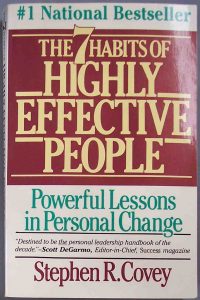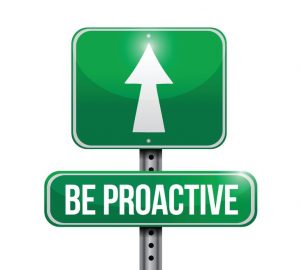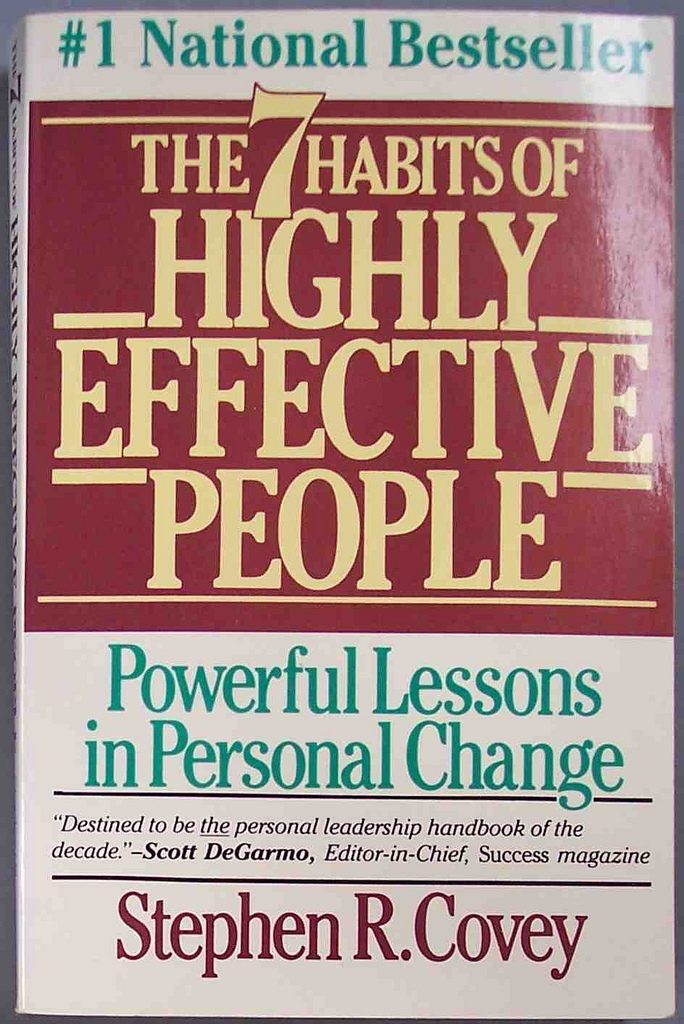
In his best-selling book, The 7 Habits of Highly Effective People, author Stephen Covey, outlined the traits of successful individuals. According to Covey, our character is a collection of habits, which have powerful role in our lives, including for effective marketers. Habits consist of knowledge, skill and desire. Knowledge allows us to know what to do, skill gives us the know-how and desire provides the inspiration.
Covey’s theory says the seven habits move us through a continuum that consists of three stages:
- Dependence: The paradigm under which we are born, which requires others to take care of us.
- Independence: The paradigm under which we make decisions and take care of ourselves.
- Interdependence: The paradigm under which we achieve something that cannot be accomplished independently.
He believed that at its core, effectiveness is determined by the final stage in the continuum—interdependency. He defined interdependence as a “healthy balance of independence, self-understanding and self-worth with dependence, nurturing and relationships.”
Building a “Maturity Continuum”
Covey’s seven habits are built around a “Maturity Continuum” that moves from independency to interdependency. Those seven habits are:
- Be proactive.
- Begin with the end in mind.
- Put first things first.
- Think win-win.
- Seek first to understand, then be understood.
- Synergize.
- Sharpen the saw.
Using Covey’s principles as a foundation, this blog and the six to follow will address how Covey’s “seven habits” manifest themselves in successful marketers.
Be Proactive

The word “proactive” has to do with anticipating and causing things to happen, rather than responding to them after the fact. It requires a visionary and forward-looking orientation. It means taking the initiative and getting things done, not only sooner but before risks, challenges and other obstacles manifest themselves.
In marketing, being proactive can mean the difference between winning the business or not. Here are a few techniques proactive and effective marketers use to stay ahead of the curve:
- Look for opportunities to innovate, collaborate and engage. Ask questions. Be inquisitive. Think about what possibilities and opportunities exist. Consider “what if” scenarios to see how to maximize rewards and minimize risks.
- Create a long-term and adaptable strategy. 60% of the most effective marketers have a documented marketing strategy, compared with 12% of their less effective peers. While having a defined plan is important, it is the ability to implement, refine and adapt that demonstrates a proactive orientation.
- Access data and metrics in real time. Tracking and gathering data are vital to any marketing initiative. Being proactive means being one step ahead by accessing data in real time. Track everything from social media engagement, content consumption or email responses. Too often opportunities or trends pass by in the blink of an eye, so avoid analysis delays and blind spots.
- Personalize your messaging. Personalization is more than just adding the recipient’s name and title to outreach campaigns. Instead, create messaging tailored to the needs and interests of individuals. Take the time to research your prospect’s company. Visit their website. Look for recent news and other milestones to help you start and continue conversations. Seek opportunities to differentiate yourself from the crowd.
- Utilize technology. Proactive marketing means looking for emerging trends, tracking data and incorporating personalization. Technology can help with all of these processes. Use artificial intelligence (AI) and data collection programs to keep a history of engagement that will help you anticipate the future and create actionable next steps.
- Follow and report on relevant industry news and trends. A true professional is one who never stops learning. Become a recognized thought leader—the “go-to” person people can count on when they have problems, need information and seek guidance.
Effective Marketers: Staying Ahead of the Curve

Marketing professionals face significant challenges and obstacles in their day-to-day initiatives. Whether it’s brand awareness, engagement or lead generation, achieving and sustaining high levels of performance is critical for organizational success. One path to this success is the identification and adoption of habits that can help us on that journey. The first habit marketers should adopt is to be proactive. Marketers have become adept at reacting to the actions and interests of their prospects, but that reaction time often means lost time and opportunity. Get ahead of the game and utilize data-driven proactive marketing to predict needs, generate quality leads and close sales.

